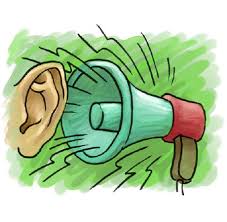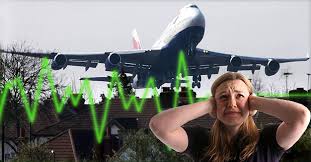
 Noise pollution is a type of energy pollution in which distracting, irritating, or damaging sounds are freely audible. As with other forms of energy pollution (such as heat and light pollution), noise pollution contaminants are not physical particles, but rather waves that interfere with naturally-occurring waves of a similar type in the same environment.
Noise pollution is a type of energy pollution in which distracting, irritating, or damaging sounds are freely audible. As with other forms of energy pollution (such as heat and light pollution), noise pollution contaminants are not physical particles, but rather waves that interfere with naturally-occurring waves of a similar type in the same environment. In the most narrow sense, sounds are considered noise pollution if they adversely affect wildlife, human activity, or are capable of damaging physical structures on a regular, repeating basis. In the broadest sense of the term, a sound may be considered noise pollution if it disturbs any natural process or causes human harm, even if the sound does not occur on a regular basis.
The prevailing source of artificial noise pollution is from transportation. In rural areas, train and airplane noise can disturb wildlife habits, thereby affecting the manner in which animals in areas around train tracks and airports hunt and mate. In urban areas, automobile, motorcycle, and even entertainment noise can cause sleep disruption in humans and animals, hearing loss, heart disease (as a result of stress), and in severe cases even mental instability.

No comments:
Post a Comment